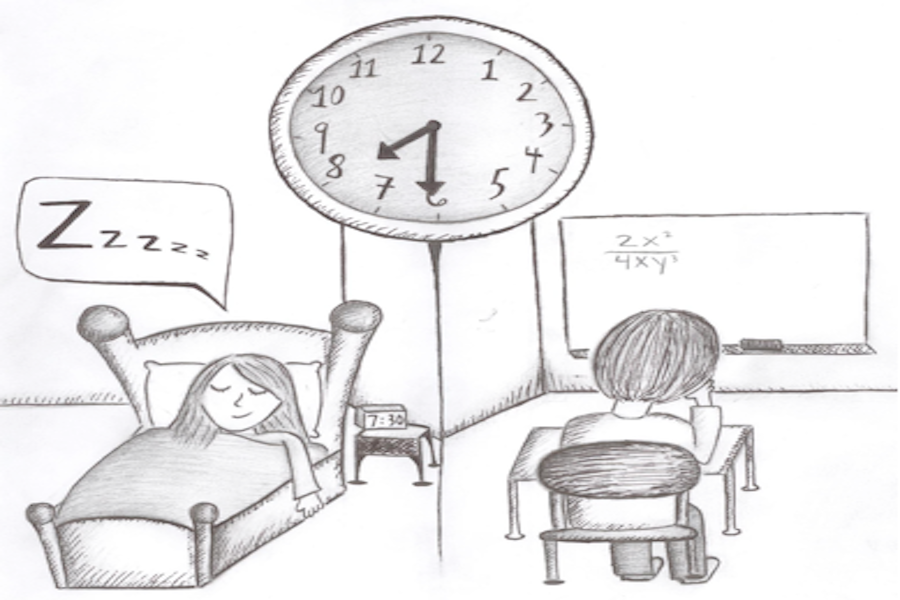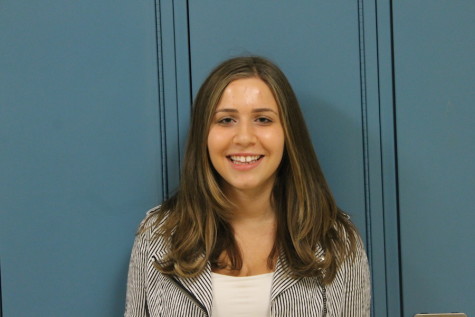It’s 7:30, Wednesday morning. I only got six hours of sleep last night and I find myself sitting in chemistry class being asked to take a test on chemical bonding.
Since there’s no chemistry between a teenager’s sleep cycle and early morning tests, why does it make any sense that I am taking an exam?
I am a teenager. I don’t jump into bed and go to sleep at 8:30 every night. Besides the fact that early bedtimes are impossible for teens due to our need to finish mountains of homework and extracurricular activities that we face every night, unlike adults and children. TeensHealth.com confirms that teenagers produce the sleep inducing hormone, melatonin, much later in the night.
This is why it never made sense to me that high school starts the earliest out of the three levels of school. Elementary schoolers go to sleep early, wake up around six in the morning and just watch cartoons until school starts. Middle schoolers begin to go to bed slightly later and wake up slightly earlier. Meanwhile, high schoolers are going to sleep very late and have to wake up at unreasonably early hours, thus, granting them a less than sufficient amount of sleep.
High school is an important time where a student’s academic life can determine his or her future. At a school like Staples where the competition is tough and we are pushed to excel, students need to pile on the APs and the extracurriculars in order to get into that perfect school. Yet, Staples students aren’t doing as well as they could because they are sleep deprived.
It’s a fact that sleep directly correlates with a student’s test scores. According to the Sleep Foundation, a non-profit organization dedicated to improving and educating Americans on the importance of sleep, teenagers need anywhere from eight and a half hours to nine and a quarter hours of sleep each night. Most teenagers could sleep for days if they wanted to, but on a school night, getting the recommended dose of sleep is nearly impossible. Therefore, grades suffer.
If students need eight to nine hours of sleep every night, then I don’t know how most of my friends get by. Most people at Staples don’t go to sleep until far past midnight, allowing themselves a maximum of six hours of sleep each night.
According to a study conducted at Brown University Medical School, students who were getting Cs, Ds and Fs in school got 25 minutes less sleep and went to bed about 40 minutes later than students who reported that they got A’s and B’s. Clearly every minute counts. So, why at a school like Staples, where we are constantly being told to do our best, are we put in a position where it is almost impossible to do so?
In 2003 Wilton High School changed its start time from 7:35 a.m. to 8:15 a.m., switching the elementary school time with the high school time. Not surprisingly, the effects of this change were only positive. According to Sleep for Teens, The National Sleep Foundation Adolescent Sleep Initiative, which reported results regarding Wilton’s change, by getting 40 minutes more sleep every night, teachers noticed notable changes in their students. Students were more awake, more pleasant, and had better attitudes. Wilton also reported a trend in improving grades.
Not only that, but when Wilton changed its start time, their sports teams were not affected at all. In fact, they improved. Wilton High School had one of its best athletic seasons this year and earned several state championships.
Staples is an innovative and modern school. We’ve got iPads in our libraries and more courses than some colleges. But now it is time for Staples to follow the in the footsteps of the other 80 schools in America, as reported by National Public Radio, who have changed their start times.
For the sake of all Staples students, I’m begging you.
Can I please get some more sleep?















































